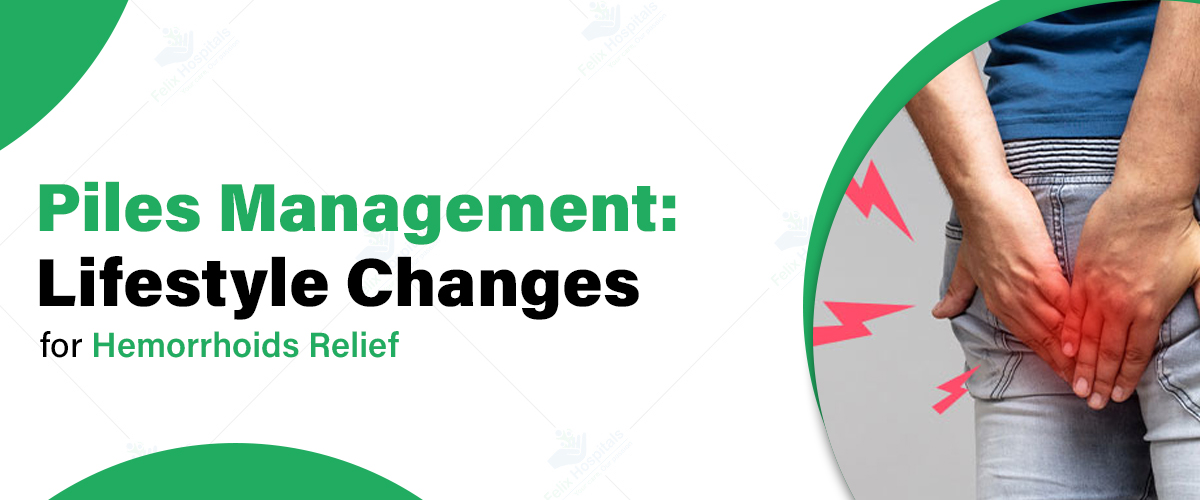03 Feb 2026
Rhinoplasty Revision Surgery in Mohali: Cost When Your First Nose Job Fails


14 Aug 2025
Call +91 80788 80788 to request an appointment.
Recovering from piles surgery requires more than just physical healing; it demands significant lifestyle adjustments to ensure a smooth recovery and minimize the risk of recurrence. At Livasa Hospital, we prioritize patient education to facilitate healthier lifestyles post-surgical procedures. This guide outlines essential changes in diet, exercise, and daily habits that can promote long-term well-being and vitality for those who undergo piles surgery in Mohali.
Piles, also known as hemorrhoids, refer to swollen or inflamed veins in the rectum and anus. While most cases of piles can be managed through dietary changes and medications, surgical intervention may be necessary for severe conditions or persistent cases that do not respond to conservative treatments. Piles surgery typically involves the removal of the affected tissue or the use of techniques to reduce blood flow to the swollen veins, alleviating pain and preventing further complications.
Understanding what to expect post-surgery—including recommended lifestyle changes—is vital for achieving successful recovery. At Livasa Hospital, our experienced general surgeons provide high-quality care and focus on a comprehensive approach to treating piles to achieve the best results for our patients.
Following piles surgery, nutrition plays a critical role in recovery. One of the most common issues patients face after surgery is constipation, which can exacerbate pain and delay healing. To facilitate bowel health and minimize the risk of complications, consider implementing the following dietary modifications:
By adhering to these dietary guidelines, patients can significantly improve their recovery experience after piles management in Mohali and potentially avoid complications like recurrence of piles.
Beyond dietary changes, other lifestyle modifications can help promote effective healing. Here are some practical tips to incorporate into your routine after piles surgery:
Implementing these lifestyle changes can significantly contribute to a more effective recovery, allowing you to resume your regular activities sooner while minimizing the risk of complications.
After piles surgery, follow-up care with your healthcare provider is essential. Regular check-ins help ensure that the surgical site is healing correctly and that no complications—such as infection or recurrence of hemorrhoids—are developing. At Livasa Hospital, we encourage patients to engage in ongoing communication with their healthcare team. Here are key aspects of follow-up care to consider:
By prioritizing follow-up care, patients can enhance their recovery journey, fostering better health outcomes in the long term.
It’s not uncommon to experience a range of emotions following surgical procedures, including anxiety or uncertainties regarding recovery. These feelings can be compounded by discomfort and changes in usual routines. Mental health is an important aspect of recovery, and here are some tips for supporting psychological well-being after piles surgery:
Acknowledging the emotional impact of surgery plays a crucial role in overall recovery, and prioritizing psychological well-being can lead to better health outcomes.
While it is important to expect some discomfort following piles surgery, knowing when to seek medical attention is crucial. Patients should be vigilant about any unforeseen symptoms that may indicate complications. Key signs include:
Being proactive about monitoring your health is essential for fostering a successful recovery and ensuring peace of mind post-surgery.
Ultimately, the road to recovery after piles surgery involves much more than healing the surgical site; it requires a holistic approach that includes the adoption of healthier lifestyle habits. By making informed choices regarding diet, exercise, hygiene, and psychological well-being, patients can enhance their recovery process and prevent future complications related to piles.
At Livasa Hospital, our dedicated team is committed to providing comprehensive care for patients undergoing piles surgery. We recognize the importance of patient education and support throughout the recovery journey, empowering individuals to take charge of their health. Should you have any concerns or require assistance during your post-surgical recovery, do not hesitate to reach out to our healthcare providers at Livasa Hospital.
This article was written by a medical content expert at Livasa Hospital, sharing insights based on professional experience in the field.
Rhinoplasty Revision Surgery in Mohali: Cost When Your First Nose Job Fails
Plastic Surgery After Massive Weight Loss: Body Contouring Packages in Mohali
ENT + Cosmetic in Mohali: Septoplasty for Breathing with Cosmetic Rhinoplasty Offers
Livasa Healthcare Group Corporate Office,Phase-8, Industrial Area, Sector 73, Sahibzada Ajit Singh Nagar, Punjab 160071
| Mohali | +91-99888 23456 |
| Amritsar | +91-99887 49494 |
| Hoshiarpur | +91-99883 35353 |
| Nawanshahr | +91-75081 82337 |
| Khanna | +91-98888 05394 |